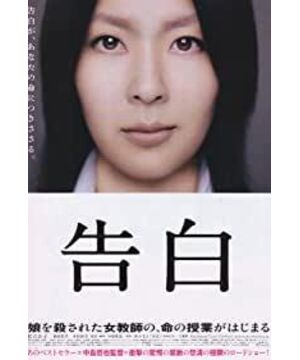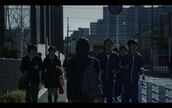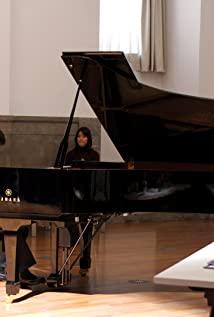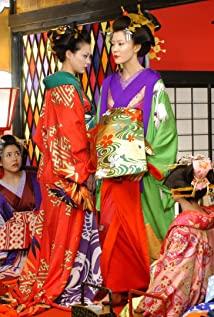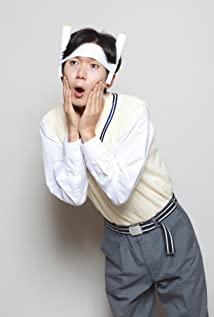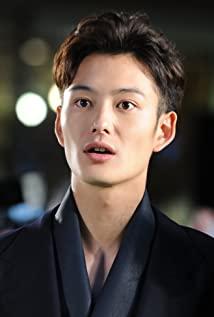As long as the spirit of questioning is carried out to the end, it is not difficult for the viewer to find himself in the darkness contained in this question mark. When we discover that our constant search for answers is the way the question itself unfolds, it becomes difficult to question the "immortality" of the question.
The innocent and lovely Aimei is naturally the most innocent. She is the furthest away from her sins. She is coquettish and easy to believe in others. It is just the "nature" that every child has. A little reason... The lack of care is the fault of Yuko Moriguchi as a mother, but wasn't she forced to take her child to school because she lost her husband and the trustee was sick? Afraid that the child will feel lonely at school and bring her closer to you, doesn't this reflect the thoughtfulness and care of a good mother? Shouldn't the act of spoiling a child, saying "no" to a child when necessary, be seen as the real driving force of the tragedy? ...Then if you want to blame, you can blame the two murderers. Two dark-hearted and cruel teenagers, they are always guilty, right? But how do we ask two children under the age of 14 to ask their sins? Would Shuya's heart become so dark if he hadn't experienced the breakdown of his family early on and was hated and abandoned by his biological mother? If it weren't for the withdrawn personality developed by the family environment, would Naoki be so depressed that he made a friend who would kill someone? ...then let their parents take care of it all, in the end they are responsible for all the faults? But didn't Shuya's mother want him so harshly to inherit everything because of the difficulty in fulfilling her career ambitions and finally abandon him to pursue her lofty ideals? Shouldn't Shuya's father do his best to take care of his future wife and children? Naoki's mother may be too close to her child just because she is afraid that the child will not feel the warmth of the family, and her husband may have gone to another country just to make the family's life more prosperous... Then Blame the overly enthusiastic Werther, blame the nosy Mizuki, blame... the social system, blame the education system, blame this age that teaches people to despise their own lives and throw away their own souls... The absurdity of such an accusation will eventually come to the fore in the grumbling against God or Big Bang who created all the conditions for us to stage this whole tragedy. Herzen's question mark of the year is still very appropriate here, but it will not be given with the arrogance of constant questioning, as if the questioner is just a detached judge who is completely out of the way.
We don't even have to question this question, if in the end all questioning always leads to the identification of a sinner. The question itself is the most fundamental thing. Any suspect who claims to have been arrested and brought to justice is an obstacle to a reasoning that is always "on the way", and they will eventually be confirmed as just "suspect"...
Crime and Punishment Shuya
recites his award-winning composition on stage , quoting Raskolnikov, the protagonist of Dostoevsky's "Crime and Punishment" - "There are people in the world who can be forgiven for murdering... In order to create a new world, I have a transcendence society. normative rights," and said Raskolnikov killed his wife after saying that. Coincidentally, after reading this article, he—according to Mr. Moriguchi’s account on the phone—killed his beloved mother with his own hands by flipping the switch on the bomb (a statement that saw his wife as a mother’s substitute). It is not a patent of psychoanalysis, so it would be unfair to criticize psychoanalysis for its far-fetched connection). Equally or even more coincidentally, with the introduction of Tuo's work - albeit a very brief introduction - the whole film seems to magically begin to move towards the three signifiers of "crime and punishment" (why not There are only two signifiers "sin" and "punishment", because in this way, the connection between the two is put aside, and the connection established by "and" is crucial here). The signifier group" gathers together, as if this refined signifier group gathers all the tension of the film's plot.
Sakuranomiya's promiscuous indulgence abroad brought him the HIV virus as a messenger of death; Moriguchi's decision after pregnancy forced her to raise Aimi by herself, and eventually lost her beloved daughter because of an inevitable negligence; Shuzai's mother initially wanted to give up her career ideals and become a housewife, but only ended up with a broken family and her son going astray; Naoki's mother was too partial and doting to her son, which made the child's character eccentric and surly. He became the "real murderer" who killed Aimi, and "executed" his mother with his own hands; Shuya and Naoki, who committed the murder, were exempted from legal punishment because they were under the age of In the end, they all suffered great psychological torture... Sins are always followed by punishment, and it seems that no one can change this "iron law". Moriguchi is just an ordinary person, an ordinary mother who does not possess the divinity of Jesus Christ, so don't expect her to say in the Son's tone: "When someone kills my daughter, I will He sacrificed himself to kill him." The connection between "sin" and "punishment" is so close that it is difficult for any secular logic or value system to shake it, and it will even raise the "and" between the two to something similar to "the law of heaven" "Such an unquestionable a priori height. But if, as Lacan said, the signification or meaning of each signifier in a sentence is retroactively assigned by the subsequent signifier, isn't "sin" a "sin" by the reverse of the later "punishment" specified? Don't people usually see the "punishment" first before "inventing" the "crime" he points to after the fact? In this way, the firm connection between them or elevated to the transcendental level is loosened, because "sin" is not an independent, high-level transcendental signifier that necessarily contains "punishment", but can only be hidden through The secret path of "and" pre-occupies the legal status provided by "punishment" and "will give it", and the legitimacy of "punishment" itself requires its subsequent signifiers - such as "law", "lun", "values", "View on life", etc. - to ensure (if Sakura Palace did not die prematurely because of AIDS, then his previous indulgent life abroad may no longer be a "sin", and it may even strengthen his reputation in the minds of students The idol status in China has become a model who advocates a full and free life. And if he lives in a country that is proud of dying from AIDS, HIV infection has nothing to do with "punishment")... Therefore, The real logic that is obscured between "sin" and "punishment" is not the fair "because you sin, so I punish you", but the dirty "because I punish you, so you sin"
Since "Crime and Punishment" has already told us the secret of "the Big Other does not exist", then in its ethical dimension, what will await us after "Crime and Punishment"? Is it the infinite self-replication and self-extension of this signifier combination? Isn't the "punishment" of "sin" itself a "sin", or even a "pure sin", because - as we have analyzed before - "punishment" is the foundation and origin of all "sin" Is it that it opened up the space for "sin", and before that, there was no such thing as "sin" and "innocence"? "When will we talk about grievances and grievances?" But if you don't look forward to the help of a big Other like the kingdom of heaven or the afterlife, is there any kind of "worldly redemption" worth waiting for, looking forward to, and fighting for? After a hell trip in his own mind, could Shuya really start a new life as Moriguchi said? Will he be greeted by the herbs of heaven or a more eerie hell? ...
Life and death
Lacan once said: People are very strong, and death supports life.
"Confession" seems to tell us that people are very fragile, and death destroys life.
The key to being strong is not whether you can persist in living, but whether you can persist in life with an attitude, whether you can use death to support your entire life, and whether you can make death the most fundamental driving force for life. Therefore we have such cowards: no matter what trauma and blows he has experienced, he cannot choose to die, his options are not death, he is only alive, but out of a kind of numbness or laziness - "Just because I accustomed to living"...
but this is not to say that going to death is always heroic. There is another cowardice here, not out of fear of death, but out of surrender to life itself. Just like Naoki's mother, it wasn't that the shadow of death lingered in her world and tormented her life; on the contrary, what made her unbearable was the endless anxiety brought about by life itself, a kind of Confused about one's own life and life, a kind of inevitable hideousness that can only be escaped by "destiny" and "misfortune"...
When Mr. Moriguchi solemnly wrote down the Chinese character "Fate" in the center of the blackboard, half of the theme of the film "Confession" had already jumped into the eyes of all viewers, although it did not necessarily come into their hearts. This is not to distinguish the attentive viewer from the deserter, simply capturing the shot doesn't help the subject "give itself." The key lies in the ubiquitous but ubiquitous other half of this theme, which lies in Naoki's throwing and cutting, and Shuya's hammering and pressing. A life disconnected from death would not only be incomplete, but would go entirely to a "living" nothingness. Without death, life would be dull. The meaning and weight of life depends on death to give it, no wonder Bataille will shout "death is the youth of the universe". In this sense, Lacan's obscure aphorisms seem to be beginning to become accessible. The question of what life is can only be answered completely by the presence of death. This is not because death hides the truth of life, but that the truth of life can only be opened with the help of the key of death. Moriguchi's education on life is remarkable and profound, because she understands that simply advocating for cherishing life is not enough to give one a sufficient reason to act in this way, to make such an action self-conscious or conscious and truly meaningful. of ethics. She narrates the truth of Lacan and Heidegger personally, plays Dante's Virgil, but makes people forget this Beatrice...
Let's go back to the other side of the problem, if we don't want to follow death to avoid life. Perhaps precisely because life is constantly advocated, cherished and cherished, the value and meaning of life itself are often regarded as self-evident and undoubted. However, the fact is that not only is the value and meaning of life inseparable from the "support" of death - as we have analyzed above - life itself is not as gentle, friendly and comfortable as the "legendary" shows. Such a carefree life is rather the illusion or illusion that people get after "disenchanting" - to borrow Weber's term - "primitive life". In other words, living in that state, or trying to live in that state, is itself a loss of life. True life is not only first to accept death, but also towards death; finally, not only towards death, but towards oneself by towards death. What you see in the eyes of the god of death should not be the fire of hell, nor the herbs of heaven, but the scenery of the purgatory itself on earth. Afraid, anxious; annoyed, worried. This is to live, to live in a state of "facing oneself", but this does not mean to live only in one's own image. Facing ourselves first means facing the world in which we are "in", and the charm of restoring life to its original origin lies first in "re-enchanting" this world, in a sense, restoring the world to our fundamental inescapability. Comprehension, that is, absurdity or absurdity. As a mother, facing the misfortune of her own children, and facing the sudden and incomprehensible absurdity of the world, a mother who loves beauty returns to life itself by heading towards death—she is not eager to go to death to find the truth of life, because death The reason why the truth of life can be opened is in the sense that death is the end of life's self-expansion rather than a rupture; Naoki's mother escaped life by walking through death - she was eager to go to death to avoid the truth of life, This truth is an unbearable taboo for her, and death is an abyss from which to escape...
The life threatened and devastated by death is of course fragile, and this life has not even manifested Its mighty power rivals death's. A truly strong life can not only gain strength and support from death, but also bravely face its own insurmountable absurdity, just like Sisyphus, who accepts and experiences "God's punishment" as life itself.
confession of desire
The film is full of confessions of different characters: Moriguchi's, Shuya's, Naoki's, Mizuki's... What does the confession mean? Confession is first to confess to someone, first of all set a confession object, a listener. Heidegger's statement that listening is a condition for dialogue to take place is similar to Lacan's emphasis on the act of speaking rather than the content of the speech. What is secondary to confession, what matters is the act of “confession” itself, which transcends the content of the confession and points to the other, which in turn points to the desire that cannot exist in the world of “solipsism”—because, According to Hegel, Kojève or Lacan, desire is always the desire of the other. Since everyone's confession must contain the dimension of desire and are essentially tied to desire, it can be said that confession is always the confession of desire.
Since confession is always a confession of desire, different forms of desire or different positions between each subject and the other can be deciphered from each person's confession. Moriguchi's confession expresses her desire to be a good mother and a good teacher. The former is not difficult to see, because whether it is a mother who takes good care of her daughter or a mother who seeks revenge for her child, she is a "desirable" mother. Where does the desire to be a good teacher manifest itself? This desire runs through her special set of teachings about life. Doesn't she ultimately want people, her students, especially the two teenagers who killed her daughter, to recognize her as a "competent" teacher, no matter how bizarre this teaching method may seem to others?
Shuya and Naoki's desires are particularly worthy of analysis because of their structural typicality. Let’s look at Shuya first: Because of the lack of active interaction with his mother as a big Other (Autre) since he was a child (first he was scolded by his biological mother, then abandoned by his biological mother, and then his stepmother or father almost failed to perform this function), so it led to Shuya's personality structure was stagnant in the pre-Oedipal period, that is, before the intervention of the "paternal function" that Lacan said, so it can be said to be a psychotic structure. The premature absence of the mother, the primordial big Other, before she can fully perform her function, makes it extremely difficult for Shuya to establish further "normal" connections with others and society. We can say from the perspective of Erickson or object relations theory that this is due to a failure to establish a primitive or basic sense of trust, or from the perspective of Lacan, it is due to the lack of a positive response or recognition from the Big Other The "deviation" of the path of the subject's desire. Without the guidance and support of the (M)Other (mother-other) desire, the subject's imaginary identity will be difficult to organize structurally, and will become floating, chaotic, and fragile - this may explain why Shuya's ideal self-image So volatile and changeable (inventors, writers, murderers, people living with HIV...). When Shuya felt incompetent in the face of his mother's overly demanding requirements, the mother's image became a terrifying giant crocodile that made him anxious, losing hope of rescue from his real father (le père réel). After that, he can only be reduced to her pleasure tool objet petit a (let her beating and scolding, as long as it can make her get some kind of pleasure...). Therefore, since Xiuzai's symbolic identity of mother-other lacks the positive response of the other party, there is no motivation to further complete the symbolic identity of the big Other, which makes Xiuzai more in an imaginary relationship of binary opposition. . His approach to Mizuki could be seen as a narcissistic attraction, as he sees her as more of a mirror image of himself - although he may have wanted to put her in his mother's place, all efforts ultimately All failed due to lack of foundation, and his desires were still not fully "mediated" by the Big Other. The two who approached because of similarity later also attacked each other because of similarity (Mizuki now verbally attacked Shuya, who retaliated against her with a hammerhead), so the myth of Narcissus contains The love-hate equivalence structure of narcissistic identification is perfectly displayed here. As a psychotic subject - more precisely a paranoid subject - Shuya is not without desires, but this desire is the desire of the small other, not the desire of the big other. In other words, his desire has not yet escaped from the dimension of the image and entered the signifier or symbol. He can only desire by attaching to the floating concrete images without a structure of desire. Continuing enthusiasm sees his tireless effort to disguise himself as his mother's imaginary stone (le phallus imaginaire), which is at the same time his constant desire to enter the first moments of Oedipus after repeated setbacks.
Let's look at Naoki again. Compared with Shuya, who was struggling on the threshold of the Oedipus period, Naoki has undoubtedly gained more affirmation and love from his mother who first occupied the position of the Big Other, and it can be said that he has successfully entered Russia. The structure of the Dipusian period. But due to the failure of his real father, the overly close relationship between him and his mother has never been reversed. He was so desperate to have a friend who would rescue him from his monotonous relationship with his mother that he would even reserve that important position first for video games and then for Shuya. But to his disappointment, Shuya couldn't play the role he expected because of his own reasons - as a friend-other to recognize him and desire him. When he learned that in Xiu Zai's eyes, he was nothing but a worthless "trash", the latter instantly fell from the throne of the big Other and became a small Other in competition with him. So he killed people Shuya couldn't kill, did what he couldn't, but shows that all the fulfillment of such a criminal process stems from the victory of an imaginary struggle that he "imaginatively kills" or succeeds in To replace Shuya and win the honor of the murderer. Here, too, is a paranoid structure of desire and the "narcissistic suicidal aggression" characteristic of this structure. If Shuya's psychotic structure has not been fully revealed at the symptomological level, then Naoki's various psychotic symptoms (delusions, hallucinations, emotional disturbances, decreased willpower...) during the period when Naoki dropped out of school and stayed at home is well represented. Out of the inner world of a delusional teenager.
In the face of these remarkable abnormalities in her own child, why did the mother who loves him so much always adopt confinement - and modern mental hospitals at least allow patients to come out and communicate - this is the most cruel and inhuman way Woolen cloth? One can of course find all sorts of excuses to justify her behavior—for example, to protect the child from further external stimulation—but no matter what the "good intentions" were, it was she who stabbed the dagger herself in the end. Aiko's chest. Are things so desperate that only death can stop the tragedy? Or has some more fragile mind turned its back on the desire to be a good mother early? "Love you will kill you", the song of narcissistic love echoes continuously in that warm prison. In the end, Naoki's entire spiritual world collapses when the only mother who can give him any sense of security puts him to death. Killing his mother, Naoki avoids extreme anxiety by reaching the real world (le Réel) with the help of this "passage à l'acte" (passage à l'acte) that helps him escape from the scene (scène) of the fantasy (fantasme) devoured, but at the cost of losing its subjectivity and becoming a pure object.
View more about Confessions reviews


